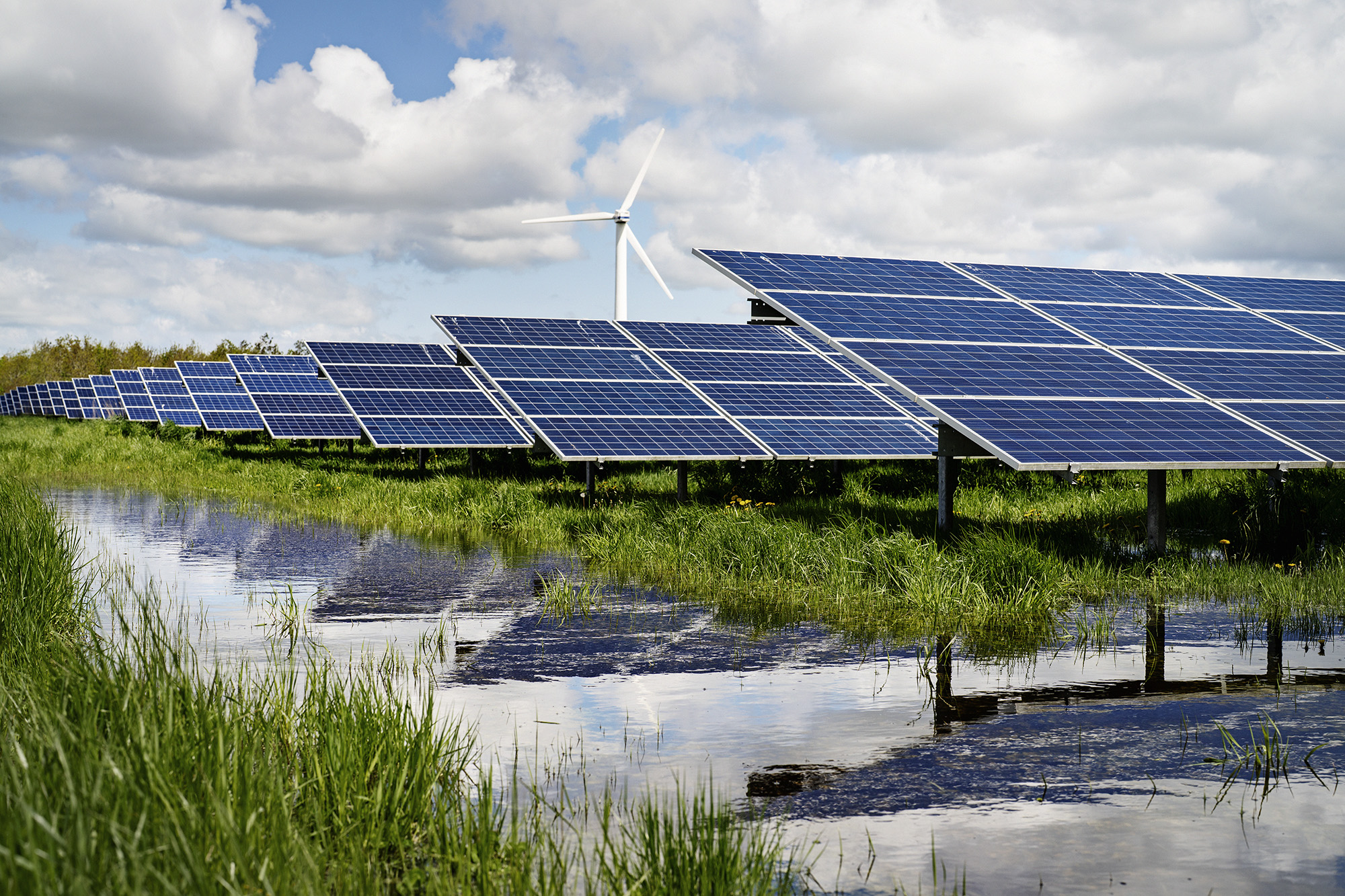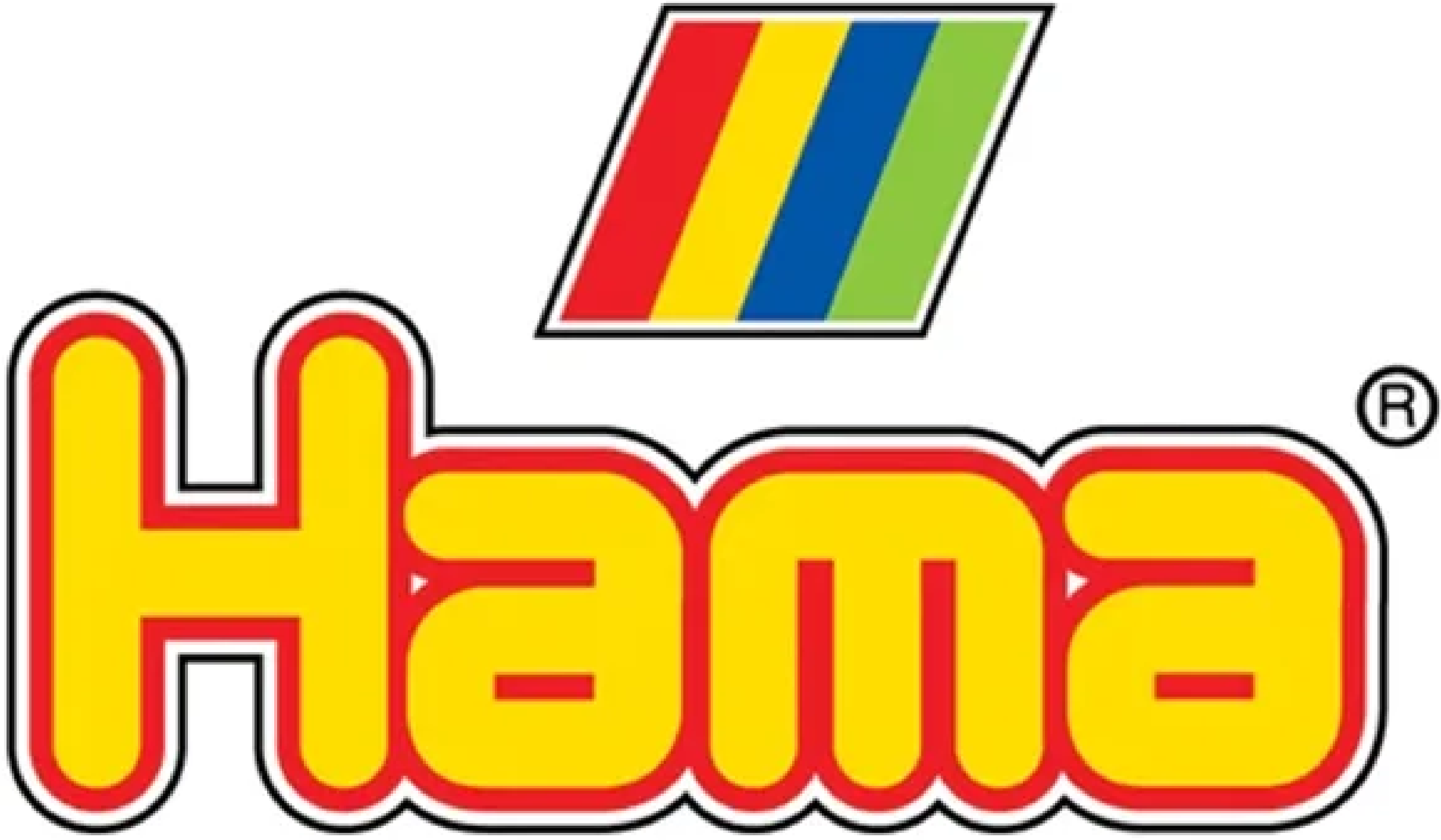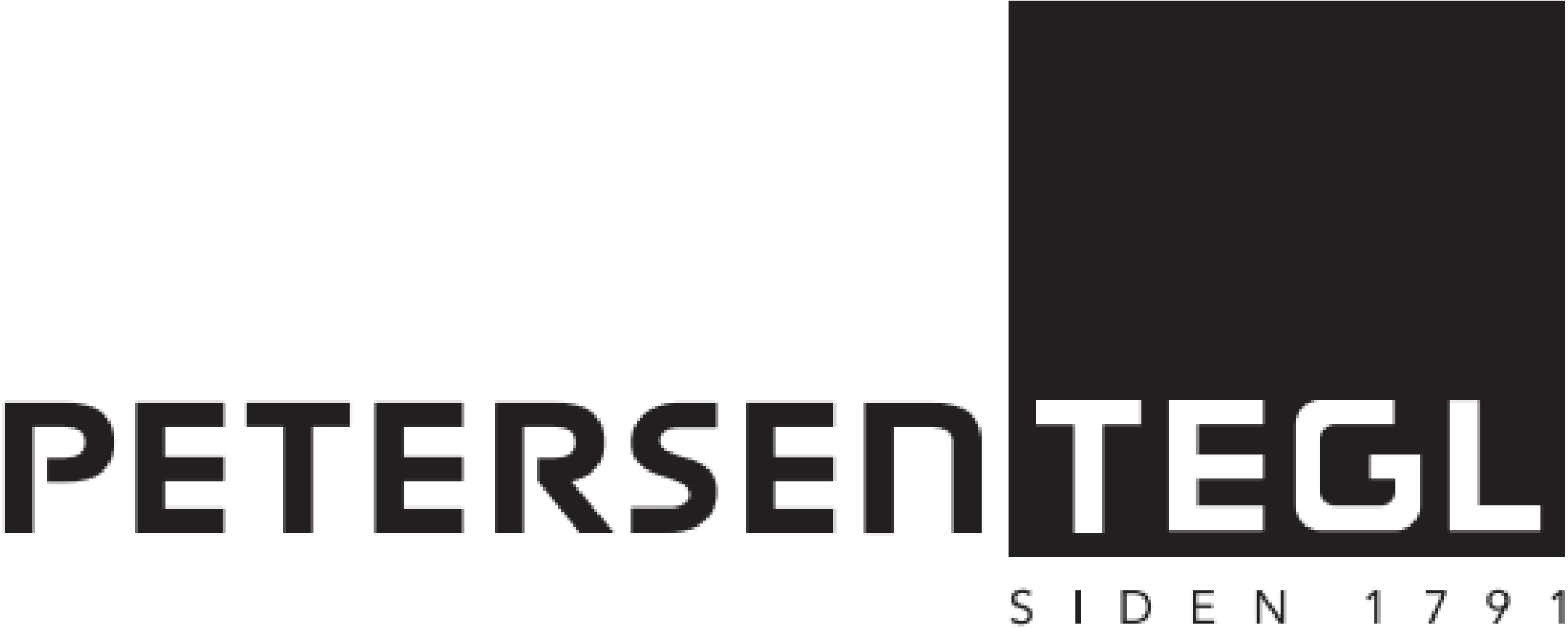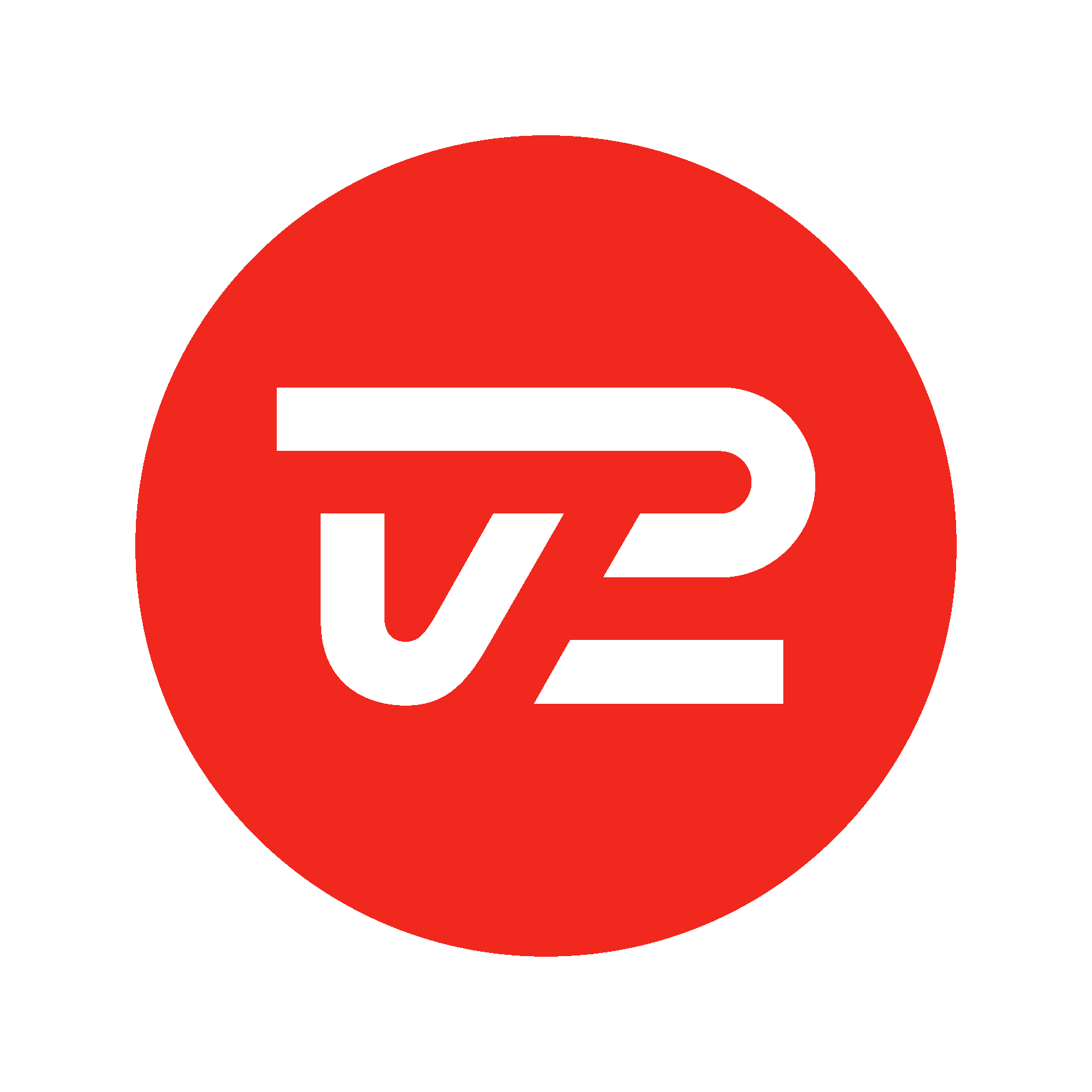Badskær Solar Park
Badskær Solar Park is located in the north of Denmark. It is adding green energy to the electricity grid as well as creating new nature areas that benefits the local nature. The project is a great example of how companies of all sizes can act on the green transition agenda.
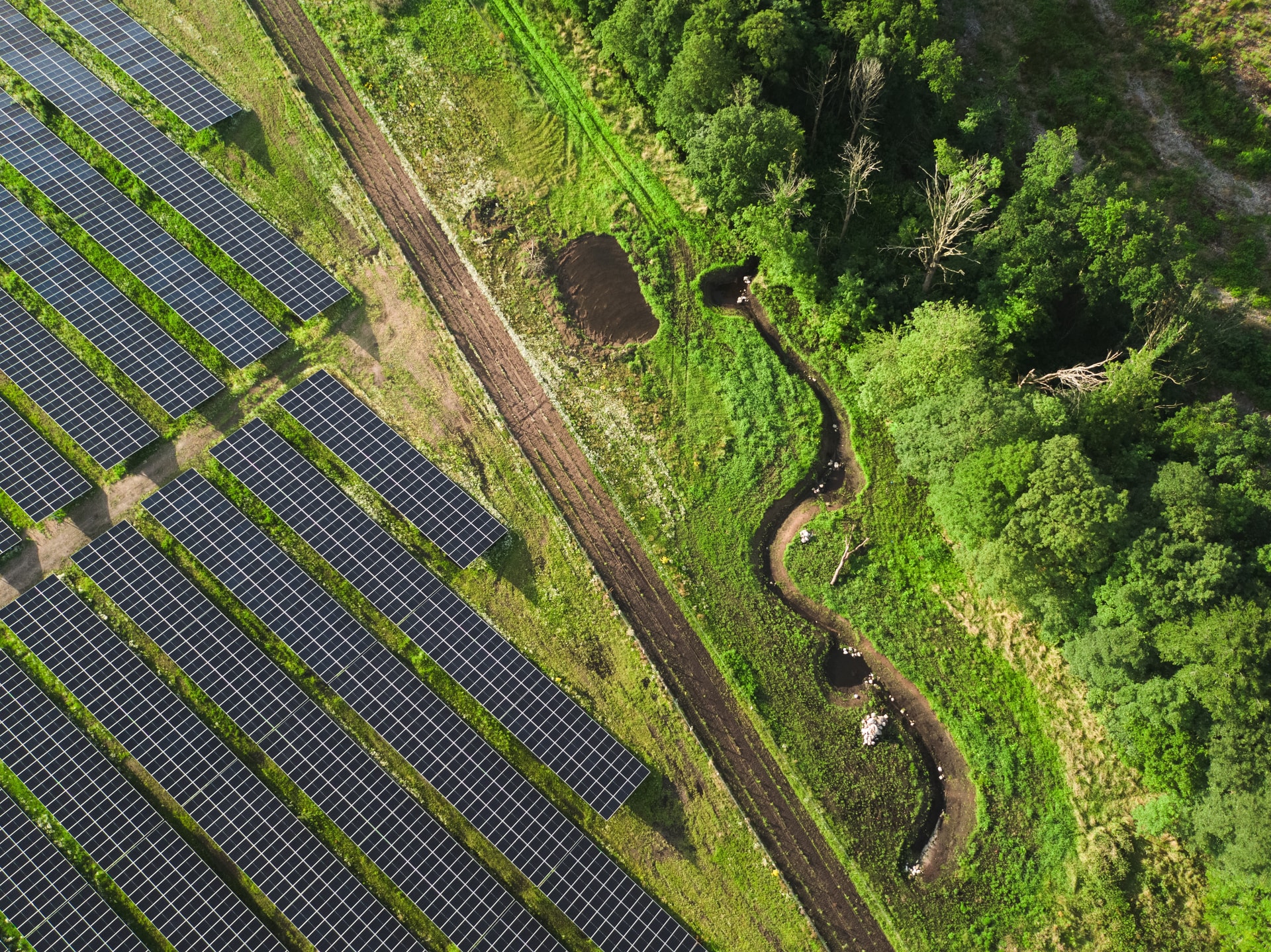
Solar park facts
-
78
MWp
capacity
-
85
GWh
expected annual output
-
67
hectares
total project area
-
53,000
Danes
equal to electricity consumption
Transforming land for renewable energy and local nature
Badskær Solar Park spans 67 hectares, previously used for agriculture, and has been transformed into a renewable energy hub. Alongside generating green energy, the project has created new recreational areas that benefit local nature. It stands as a prime example of how small and medium-sized businesses with ambitious green goals can drive meaningful change in the transition to sustainability.

Who made Badskær Solar Park a reality through power purchases
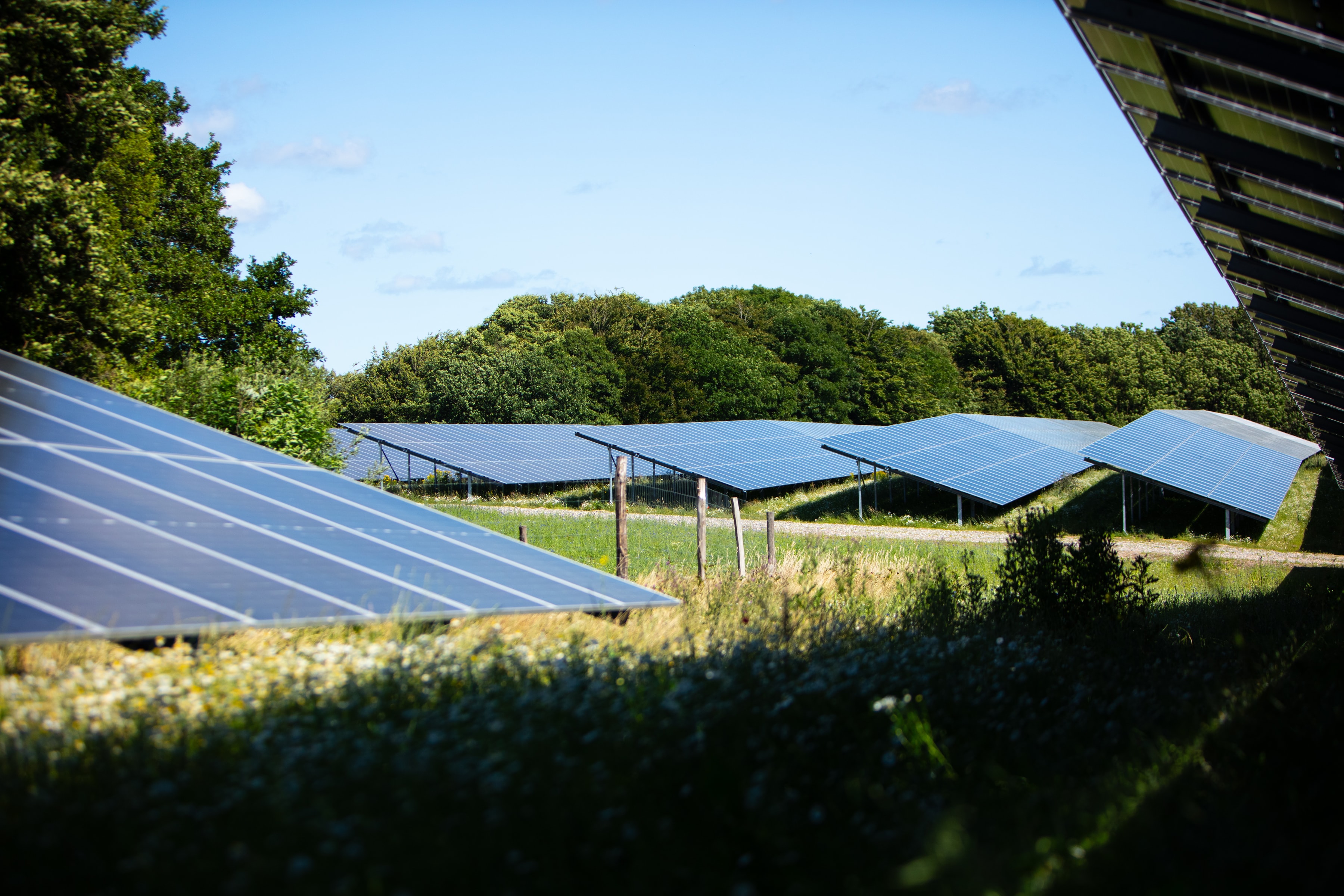
Community and nature initiatives
| New nature area on the forest edge |
A new nature area is established on former agricultural land up against the existing forest. The area consists of a wetland area in the west, where we have established a fresh meadow and created an open drain water stream. In the east, we have planted groups of trees and bushes in a new shrubbery that creates a more natural transition between forest and open country and which at the same time ensures food sources for the area’s local fauna. |
|
| Wildlife passages |
Under the existing north-south high-voltage lines, a wildlife passage is laid out, connecting the two forest areas north and south of the solar cell area. In the wildlife passage, the starting point is existing natural values and additional structures such as bare soil strips and insect ramparts have been added. |
|
| Flower meadow |
A bee-friendly herbal mixture has been sown for the benefit of the area’s insects. |
|
| Microhabitats areas |
There are two larger areas that provides the opportunity to test different nature initiatives. The areas are fenced so that the sheep do not graze here. One area is sown with a wildflower mix, and the other area is laid out for natural development. In both areas different microhabitats such as field stones and felled trees are established. |
|
| Habitats for amphibians |
There is a natural population of amphibians and frogs in the area. The park includes three amphibian habitats in different places in the park. A nest for toads has been created by digging a hole and filling it with stones and branches. The cavities and structures are created in the ground build an ideal habitat for both the summer and the winter. |
|
| Bird and bat boxes |
In order to support and improve the conditions for birds and bats in the area, we have placed approx. 40 bird and bat boxes in various places on the property. |
|
| Natural hedgerows |
Establishing planting belts around the solar areas of the park, creating visual shielding using native trees and shrubs. |
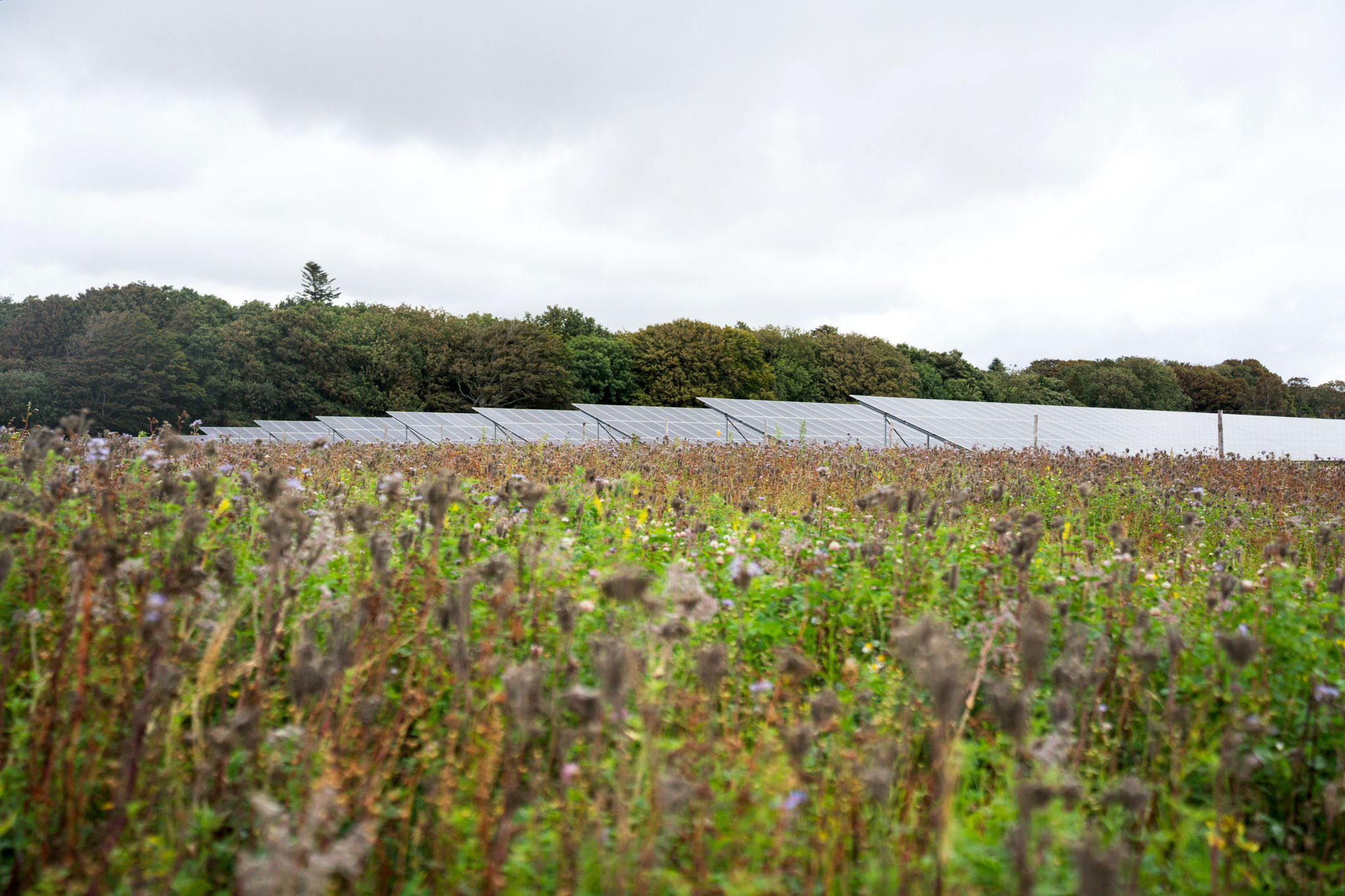
Wildlife passage
Under the existing north-south high-voltage lines, a fauna passage is laid out, connecting the two forest areas north and south of the solar cell area. Structures such as bare soil strips and insect ramparts have been added.
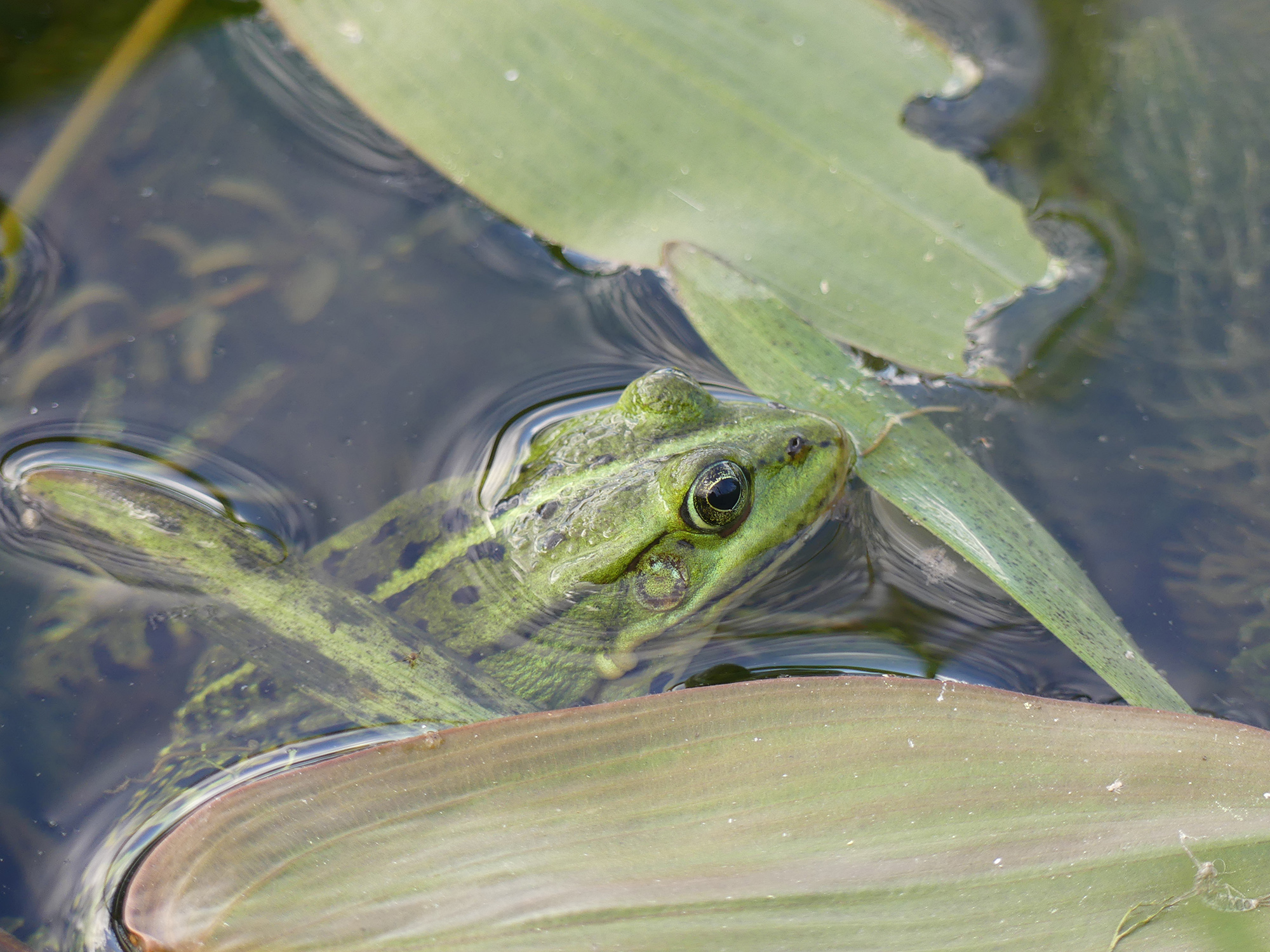
Amphibians' habitat
There is a natural population of amphibians and frogs in the area. As an experiment, Better Energy has therefore established three amphibian habitats in different places in the park.
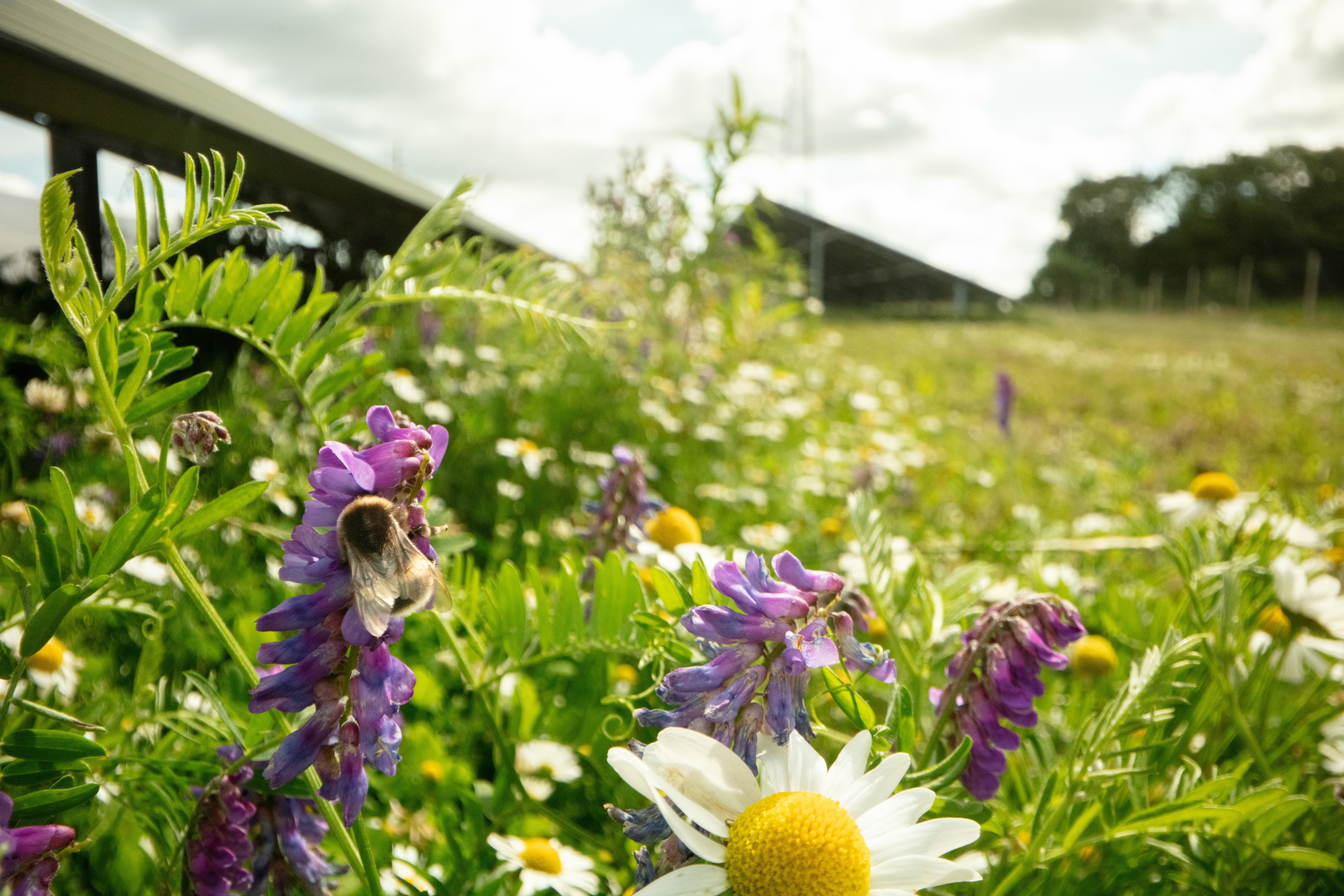
Flower meadow
A flower meadow is included in the project’s recreational initiatives, featuring a specially chosen mix of flowers to attract and support local pollinators.
2,2 million DKKR towards local green initiatives
Better Energy has dedicated 2,2 million Danish kroner to a fund that supports local projects focused on environmental sustainability and energy savings. This is known as the Green Pool Fund.
The World Goals Committee and the Economic Committee of Frederikshavn Municipality will decide which projects will receive funding from the pool.
Learning about the nature initiatives in Badskær Solar Park
The solar park is built on leased land. Once the park was grid connected, landowners, the grid operator and our PPA partners was on a guided tour of the park to see the nature and recreational initiatives in the park.
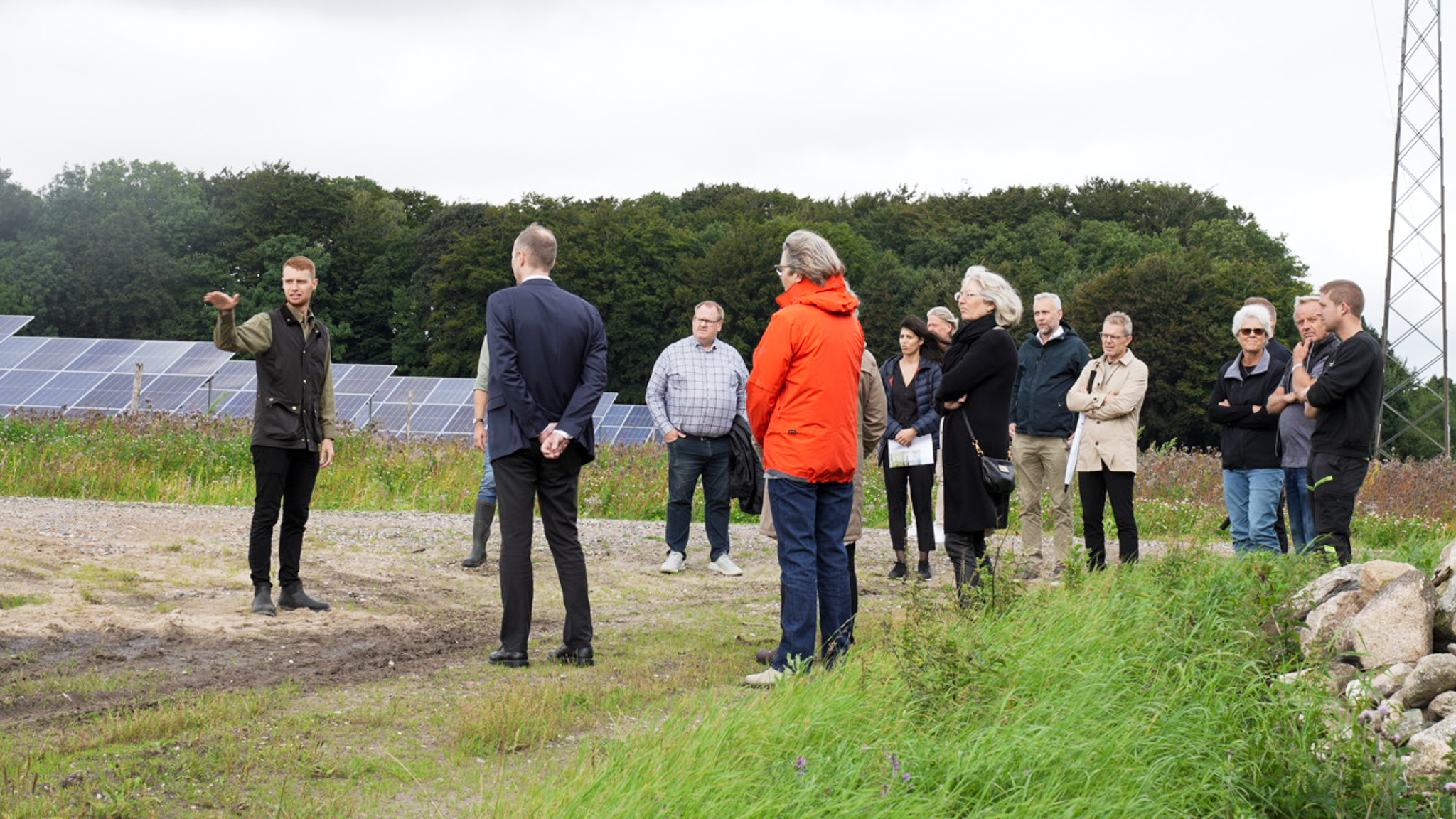
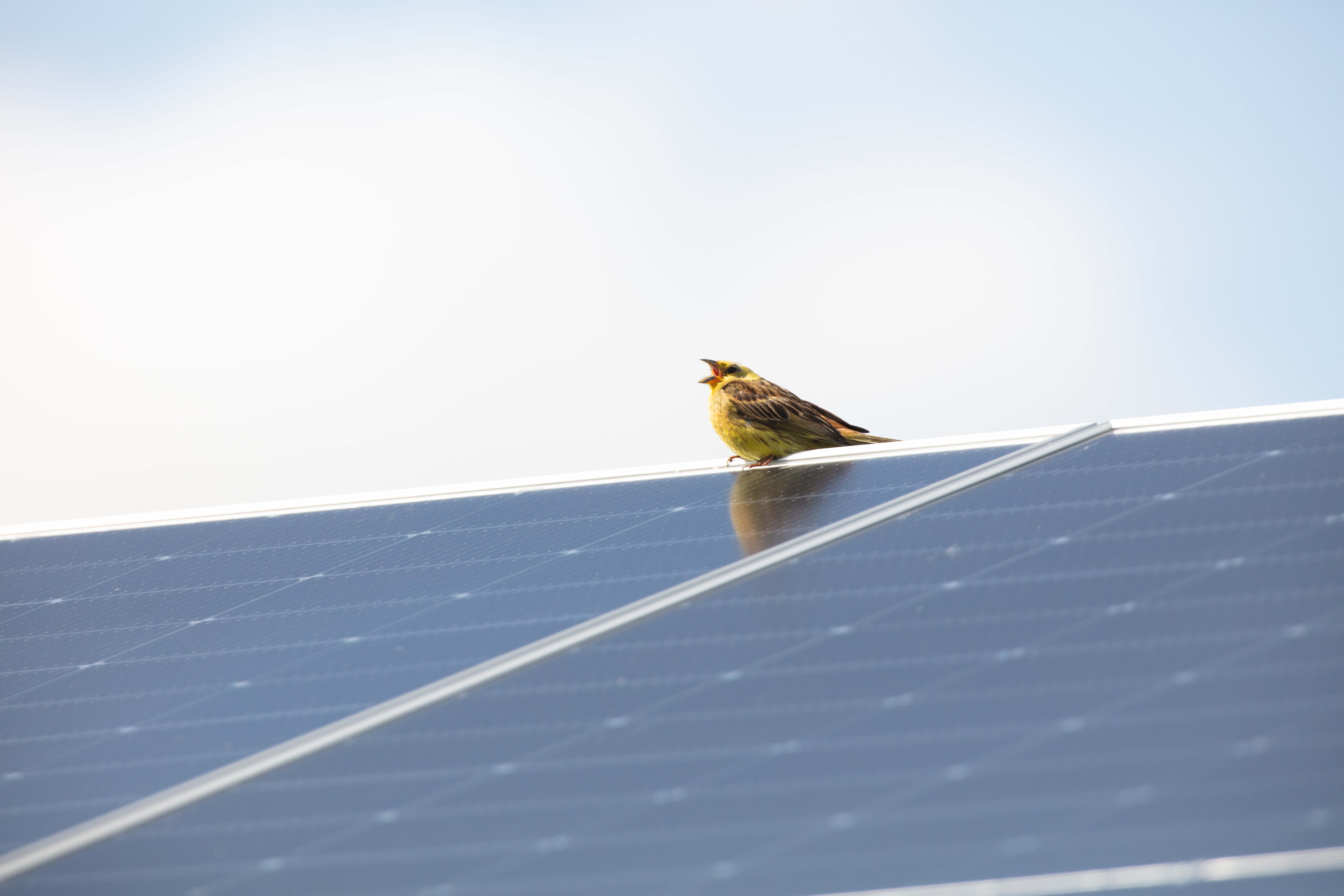
PPAs are for businesses of all sizes
The partnering companies, ranging from small to large, has entered into a Power Purchase Agreement (PPA). The project is a strong example of how PPAs, regardless of company size, play a crucial role in driving the green transition. It shows that businesses of all sizes can contribute to the shift towards zero-emissions electricity.
